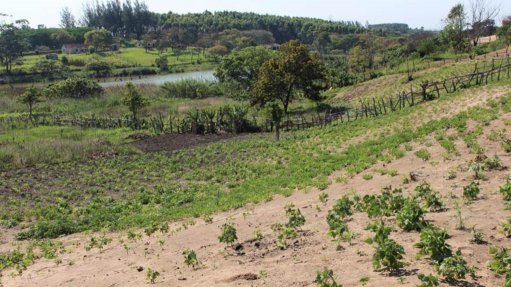
ENVIRONMENTAL IMPACT The role of an experienced resettlement practitioner is integral in providing practical management solutions
Planning for the start of mining at the KwaZulu-Natal-based Zulti South lease area, mineral sands miner Richards Bay Minerals (RBM) has been working closely with mining consultancy SRK Consulting to ensure that its resettlement strategy continues to enhance both the company’s social licence to operate and its adherence to good international industry practice.
Helping to guide the resettlement process are a number of international good practice guidelines and standards, South African law and the related policies of owners Rio Tinto and RBM themselves.
RBM has dedicated “substantial time and resources” to the process of consulting and negotiating with stakeholders in their mining lease area, building strong relationships to support the often complex process of developing and implementing a sustainable resettlement action plan, the consultancy states.
SRK Consulting states that, often, mines will leave the management and implementation of resettlement too late, in the mistaken assumption that communities would be agreeable to the move and that the process is relatively simple and straightforward. However, owing to the often dynamic and uncertain nature of resettlement, it is always contested terrain and the sector now has to address it more carefully and proactively to avoid the mistakes of the past.
Aspects such as time, resources and the development of relationships are among the most critical factors historically underestimated when mines look at resettling households on or near mining leases.
In the case of Zulti South, resettlement planning activities began over six years ago – and implementation is still under way. This proactive planning has allowed the project team to ensure that robust and inclusive engagement and participation have occurred on all aspects of the relocation, from household design to the location of replacement land.
To date, the Zulti South project has offered several challenging engagement dynamics. SRK Consulting has worked with RBM to plan and guide the negotiation process with numerous stakeholders on and near the lease area.
From the onset of the Zulti South project, extensive design and engineering options to mitigate the need for relocation were considered. The final homesteads requiring relocation were decided on in terms of clearly defined eligibility criteria. These criteria were carefully developed to avoid resettlement if possible, while still ensuring that no homesteads were adversely affected by mine-induced impacts. This included looking into the requirements of the Mine Health and Safety Act, the environmental impacts of the mining operations, and the current state of social cohesion and make-up of the social structure within the community.
Despite the need to resettle homesteads, economic displacement caused by the necessity to relocate numerous fields in the mine lease area has potentially far-reaching implications. The Zulti South area is currently used extensively for subsistence and small-scale commercial agriculture. The bulk of the work on the project, states SRK Consulting, has been around developing fair, negotiated and sustainable compensation packages for the affected farmers. This has included extensive consultation focusing on the difficult task of identifying and securing suitable replacement land.
The economic displacement component of the project has also seen SRK and RBM identify opportunities for sustainable social development and livelihood restoration and enhancement.
Further, the relocation of graves and the disturbance of cultural heritage are components of resettlement that are highly emotive and potentially complicated. The Zulti South project has been successful in addressing this aspect through extensive negotiation and rigorous engagement. It has been agreed that a small number of identified burial sites will be physically exhumed and reburied, while other so-called “places of memory” will be spiritually relocated in accordance with local custom.
In addition, two memorial cemeteries will also be constructed for the reinterment of human remains discovered during construction and active mining activities.